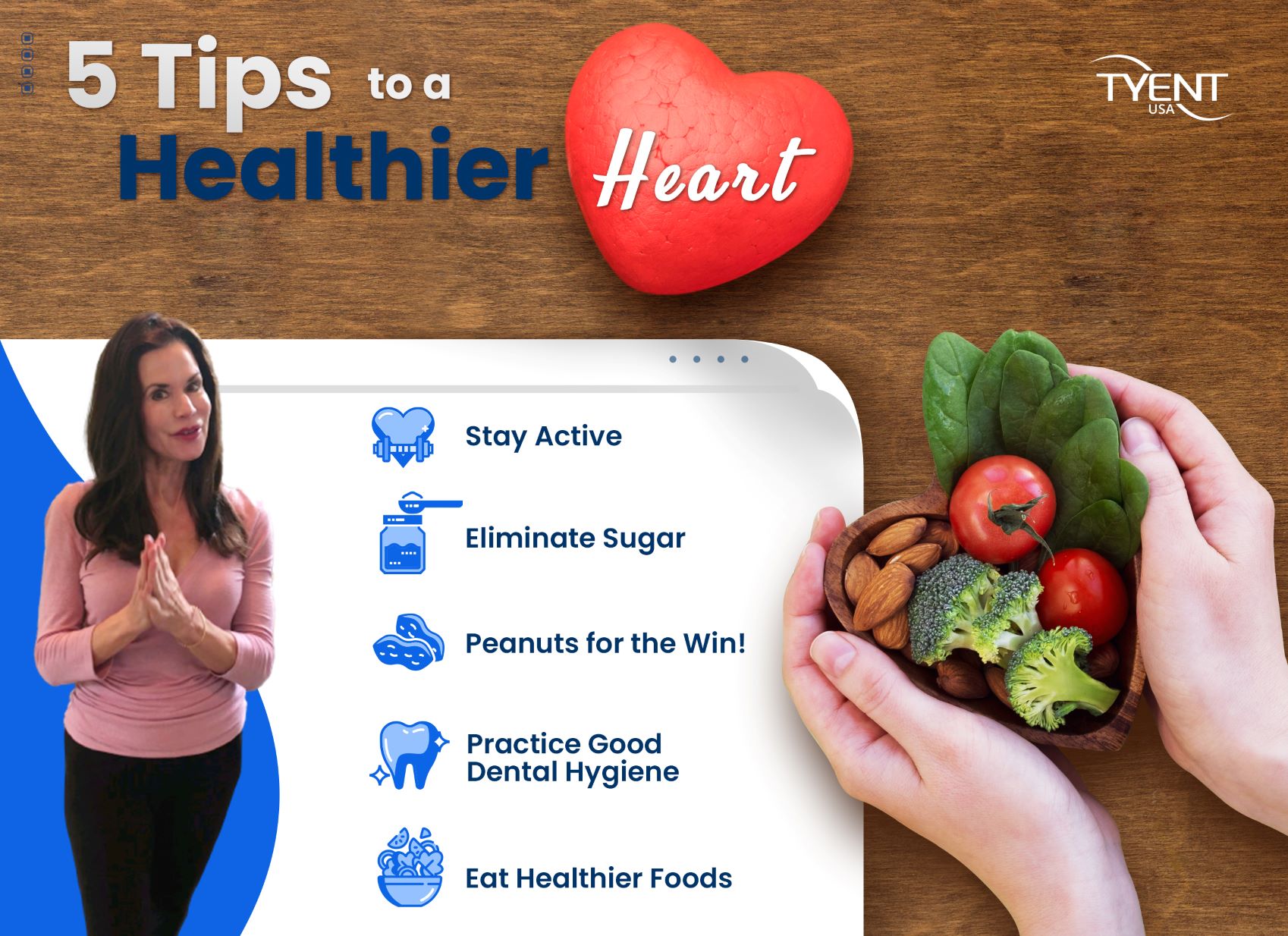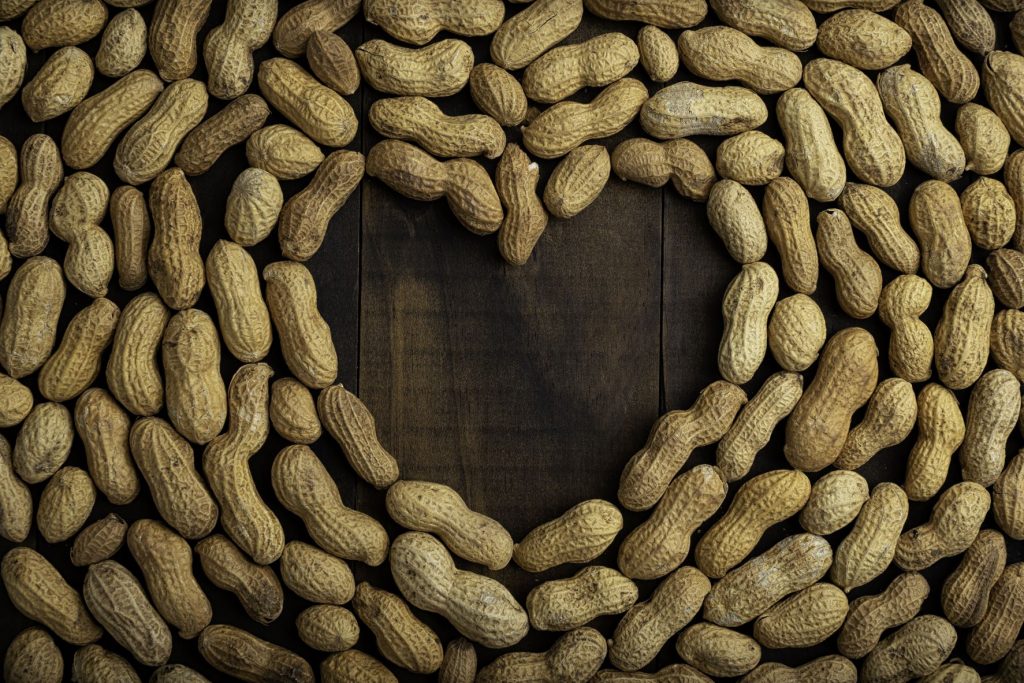Dr. Lori Shemek is back again to share her 5 Tips to a Healthier Heart. Dr. Lori is the best-selling author of books such as The Ketogenic Key, Fire Up Your Fat Burn and Beginner’s Guide to Intermittent Fasting. Dr. Lori is a certified nutritional consultant and weight loss expert who spreads awareness of the negative effects of inflammation.

One of the top health goals for many is to optimize their heart health. Heart disease is the #1 cause of death worldwide, and it’s mostly preventable by changing your lifestyle and managing risk factors. Nearly half of all adult Americans, that is 121 million, have some form of cardiovascular disease. The good news is that we can help prevent cardiovascular disease and other metabolic conditions. Taking healthy steps is key to prevention and optimizing overall health.
Apply the following life-saving tips that will have a powerful impact on your heart health.
Stay Active
The human body is designed for movement. Sadly, we have become very good at sitting most of the day. This is having a serious negative impact on our heart health, our weight, inflammation and brain health.
Moving your body by walking, jogging, dancing, or engaging in any form of exercise, creates a stronger heart, but also releases antioxidants within the body that not only prevent cardiovascular disease but promote energy and optimal health as well.
Eliminate Sugar
Sugar is the sweet destroyer of cellular health and heart health. In fact, sugar promotes atherosclerosis, obesity, insulin resistance, diabetes, high blood cholesterol and hypertension. There is a staggering intake of sugar in the diet.
The average American ingests a whopping 156 pounds of added sugar every year. Many have no idea they are ingesting this much as it is added to almost every food available.
Many folks are purchasing what they assume to be ‘healthy’ foods when in fact, they are preventing optimal health and heart health. They buy fruited yogurts which can have more sugar than a candy bar; they bring home whole wheat bread – eating 2 slices of whole wheat bread raises your blood sugar more than eating 2 tablespoons of table sugar does and fruit juice enters the picture too – which is simply liquid sugar. It is vital to read labels to check for added sugar.
Peanuts for the Win!
Peanuts are delicious and, fortunately for us, they pack a powerful and healthy nutritional punch when it comes to heart disease. A plethora of evidence shows peanuts promote a reduced risk of heart disease – a 2018 study published in the Current Atherosclerosis Reports found those who consumed peanuts regularly had a reduced risk of dying from cardiovascular disease. A 2017 study that examined more than 200,000 participants showed that regular peanut consumption was associated with a 15% reduced risk of coronary heart disease. Additionally, a study published in the New England Journal of Medicine found that eating nuts daily can reduce death from heart disease by 29%.

Heart Healthy Peanut Facts:
A one-ounce serving of peanuts, which is about a handful, is close to 170 calories and contains:
- 7 grams of protein – An important macronutrient that helps you feel full and contributes to lower blood sugar.
- 19 vitamins and minerals, many of which fight heart disease – The heart-healthy vitamins and minerals delivered by peanuts include vitamin E, folic acid, niacin, magnesium, vitamin B6, zinc, copper and potassium. Peanuts are also a good source of biotin, manganese and molybdenum.
- Bioactive compounds – Polyphenols, phytosterols and antioxidants are plant substances that offer health benefits beyond vitamins and minerals. They’ve been shown to help reduce cardiovascular disease and cancer risk, lower inflammation and cholesterol and improve blood flow.
- Healthy fats – The monounsaturated and polyunsaturated fats in peanuts, like those in olive oil and avocados, help decrease “bad” LDL cholesterol and increase “good” HDL cholesterol.
- Fiber – Studies have shown that diets high in fiber can contribute to lower levels of LDL cholesterol. Plus, high-fiber diets are associated with a reduced risk of heart disease.
- Peanuts contain essential nutrients to help lower blood pressure such as niacin, magnesium, potassium, manganese, copper and many others.
- Peanuts help reduce inflammation related to heart disease.
Practice Good Dental Hygiene
Oral health is vital to protect against heart disease. Why would cardiovascular disease and poor oral health be connected? You can blame it on inflammation. The bacteria that infect the gums and cause gingivitis and periodontis also travel to blood vessels elsewhere in the body where they promote blood vessel damage, blood clots, heart attack and stroke. Brush, floss and get dental check-ups for heart health.
Eat Healthier Foods
Eating an anti-inflammatory diet is the foundation of heart health. A heart-healthy diet includes whole foods that are anti-inflammatory. Eat more low-sugar fruits such as berries and kiwi, along with vegetables, beans, nuts, avocados, leafy greens, cruciferous veggies such as cauliflower or broccoli and fatty fish. You want an abundance of phytochemicals from these foods to nourish cellular health – that includes all cells including those that line the arteries.
Eliminate processed and fast foods as they produce inflammation. To eliminate sugars and processed foods from your diet, you must read the ingredient list as a foundation.
View this post on Instagram
Recommended Reading | Dr. Lori’s Vault








